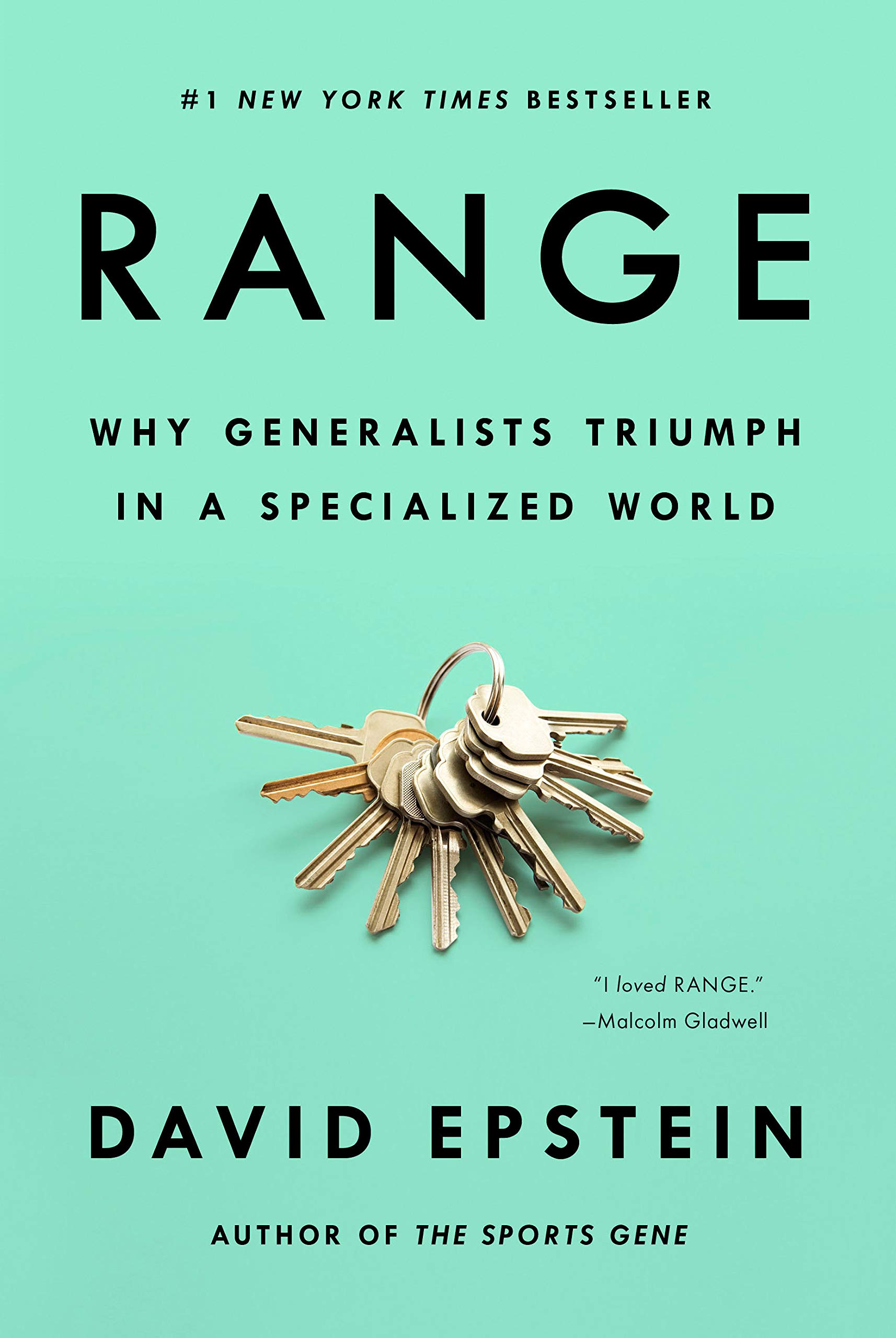Book Review: Range
Published:
David Epstein’s Range is a survey of the research on learning and specialization. Through studies and anecdotes, he argues that we should appreciate and cultivate broader skillsets. Exploring fields from sports to rocket science, Epstein’s argument is likely to have applicable advice for your life.

Here’s the paperback and audiobook.
Utility: ⭐⭐⭐⭐ (4/5) Epstein’s book ties together a lot of ideas in psychology and education around the same thesis. The basic idea—that we might want to diversify our skills—resonates a lot with me and is part of why I try to read broadly. I feel like some of his anecdotes are cherry-picked, but the supporting studies give more credence to his claims. I did have one nagging thought: Epstein points out repeatedly that there are many “outsiders” or “generalists” at the top. This seems silly. There are many more outsiders than insiders, so even if outsiders are only half as likely to succeed, they will still be overrepresented. The fact that there are more generalists period can explain the rare generalist superstar.
Writing: ⭐⭐⭐⭐ (4/5) An example of “show, don’t tell,” the book does a great job of focusing the reader on the stories. Most of the book was well paced and taught distinct lessons. Some chapters were repetitive though, especially towards the end. The book could’ve been 50 pages shorter and read just fine.
Notes
Learning
Laszlo Polgar raised 3 chess champions by training his daughters soon after they were born. But Polgar’s experiment only works for kind learning environments like chess, where circumstances are predictable and stable. The real world has many more wicked learning environments: the technology, culture, needs, rules, etc. change over time.
When circumstances change, learned inflexibility or cognitive entrenchment is harmful. Flexible thinking explains the Flynn effect, the gradual global rise in IQ: the modern world is complex and dynamic. People need a good way of thinking, moreso than knowledge, as exemplified by Fermi problems.
Music and sports both demonstrate that learning in a diverse set of environments builds deep instincts that carry across domains. In the classroom, teachers should try to ask more connection questions over procedural questions. Linking two concepts—like calculus and geometry—does much more than teaching students to plug-and-chug.
The key is desirabie difficulties: challenges that are productive for learning. Useful strategies:
- Generation effect: Merely having students come up with their own ideas, even if wrong, helps build understanding.
- Hypercorrection effect: Students who are the most confident in wrong answers also adapt their beliefs the fastest.
- Sapcing effect: Distributing practice over time blocks can cement knowledge. For the same reason, interleaving problems from different domains is more effective than blocking.
More broadly, range lends itself to analogical thinking. When approaching a problem, people with knowledge from diverse fields can better adopt an outside view.
Openness
Tiger Woods was always a golfer. Roger Federer needed time—he sampled a bunch of different sports before finding golf. But the sampling period improved match quality, since tennis suited him best.
Grit can be dangerous. The Dark Horse Project documented how the most successful people were often outsiders, switching fields frequently and preferring short term planning. Most people fall prey to the end of history illusion: our collective inability to imagine how different the future might be. In reality, we are much more suceptible to change. The context principle suggests that environment alone can lead us to behave differently—extroverted at dinner, introverted at a large party.
The Einstellung effect is our predisposition use the same old solution when a better one might be available. For inventors, lateral thinking can lead to breakthroughs, using the same old technologies in novel ways. In fact, among inventors in ambigious, complicated domains, the most successful tend to be generalists or polymaths.
Openness to new perspectives is important. Foxes outperform hedgehogs at forecasting by deploying a multitude of perspectives and taking in all information. In organizations, it’s useful to stay modest and open to new ideas, hence the willingness of scientists to fund research without immediate applications.
